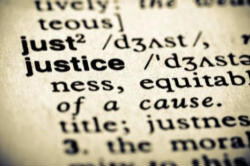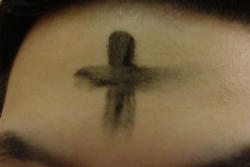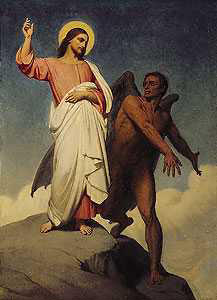 Last year I participated in a gathering of Catholic Leaders who take their Christian faith seriously and try to inform their social, cultural, political and economic positions in accordance with it. They came from every walk of life and understand the implications of their faith on social, cultural, political, and economic participation. They try to live what Pope Benedict calls a “moral coherence” and have rejected the “separation between faith and life” which the Second Vatican Council called one of the “greatest errors of our age”. The attendees serve at various intersecting points of cultural influence; the academy, the political arena, business, philanthropy, media, medicine, law and justice. They are heroic and inspiring men and women. I was asked to discuss the topic of “Catholics and Political Participation”. I insisted that Catholic Social Doctrine should be the foundation for all of our social participation and spoke of the need for an authentic approach to “Social Justice”.
Last year I participated in a gathering of Catholic Leaders who take their Christian faith seriously and try to inform their social, cultural, political and economic positions in accordance with it. They came from every walk of life and understand the implications of their faith on social, cultural, political, and economic participation. They try to live what Pope Benedict calls a “moral coherence” and have rejected the “separation between faith and life” which the Second Vatican Council called one of the “greatest errors of our age”. The attendees serve at various intersecting points of cultural influence; the academy, the political arena, business, philanthropy, media, medicine, law and justice. They are heroic and inspiring men and women. I was asked to discuss the topic of “Catholics and Political Participation”. I insisted that Catholic Social Doctrine should be the foundation for all of our social participation and spoke of the need for an authentic approach to “Social Justice”.
During the course of my talk I insisted that such an authentic understanding of social justice should inform a new movement for our time. I for one never fit in to what was called “the religious right”. Most Catholics did not. I am neither “liberal” or “conservative”. I am simply a Catholic Christian who seeks to inform my political participation in accordance with principles derived from my faith which I believe will help to structure a truly just and compassionate society. In the question and answer period after my talk the host of the conference made a suggestion that we get rid of the term “Social Justice” altogether because it has been coopted by what he called ‘the left”. He asked for my thoughts and I strongly disagreed. I insisted that we take back the phrase from those who have stolen it, either on the political “right” or “left”. As the lively discussion continued a man in attendance became so angry about my use of the term social justice that he began to shout and rushed the platform. Fortunately, he calmed down.
I am well aware of the co-opting of the term “Social Justice” by the political “left” – so is the leadership of the Catholic Church. She has rightly condemned the errors found in versions of what was called “liberation theology” and other efforts to hide Marxist ideology and other errors underneath a misuse of the term “Social Justice”. However, the Catholic Church has not stopped using the term “Social Justice” and neither should we. I am also aware of radio personality and commentator Glenn Becks’ efforts to expose the misuse of the term in some segments of the leftist/activist protestant community. Glenn Beck is a former Catholic who does not know the authentic Social Doctrine of the Catholic Church. The best thing we could do in our relationship with him – even as we collaborate on important issues as we can- is present that real teaching of the Catholic Church and expose the counterfeit notion of social justice he rightly rejects.
The Social Doctrine of the Catholic Church is not only for Catholics, other Christians or even just “religious people”. It is for all people and all Nations. It is offered by the Catholic Church to all who seek to build a truly just society and promote the real common good. This teaching is called “social” because it speaks to human society and to the formation, role and rightful place of social institutions. The truths and principles it offers can be known by all men and women because they are revealed in the Natural law. They are expounded upon in Revelation.
This social doctrine is neither “left” nor “right”, neither “liberal” nor “conservative” – within the contemporary politicized use of those words. Anyone who wants to know what the Social Doctrine of the catholic Church really consists of can go to a wonderful source in which it has now been compiled. It is called the “Compendium of the Social Doctrine of the Catholic Church” and can be purchased here. It is also available online on the vatican website here. It is a masterful volume which gives the biblical citations, references to writings from the early Church Fathers, Church Councils and all relevant Catholic Social teaching.
Catholic Social Doctrine confronts what Pope Benedict rightly labeled the “Dictatorship of Relativism” of our age which insists that there is no such thing as truth or that “what is true for me” is different than “what is true for you”. It rightly insists there are unchangeable truths which can be known by all. Further, that they should provide a framework for structuring our social life together. The foundational truth upon which they all rest is the dignity of every human person at every age and stage. This human dignity is present in every person because we are all made in the Image of God. It demands respect for every human life whether that life be in the first home of the womb, a wheelchair, a jail cell, a hospital room, a hospice, a senior center or a soup kitchen.
Another one of these truths is that true marriage is between one man and one woman, intended for life, and ordered toward the bearing and raising of children in the family. Marriage is not some social construct which can be redefined by courts or legislatures. It is also another example of a word we must not give up! True marriage is the foundation for family and family is the first society, first church, first school, first economy, first government and first mediating institution.
Another truth is that all human persons created in the Image of God, are created for one another and called to community. We can never fully experience human flourishing outside of social relationships. These relationships are perfective of our human person. The human person is by nature – and grace – made for relationship. The first community which humanizes and civilizes us is the family.
Catholic Social Doctrine rejects any notion of “freedom” which begins and ends with the isolated, atomistic, person as the measure of its application. Authentic human freedom must be exercised within a moral constitution, choosing what is good and what is true. Otherwise it becomes a counterfeit and enslaves. It must also recognize our obligation in solidarity to one another. We are our brother/sister’s keeper. It offers us principles which can help us order our economies but does not propose or endorse any particular economic theory. Rather it insists that every economic order be at the service of the human person, human freedom, human flourishing and the family.
Catholic Social Doctrine insists that we are called to give a love of preference to the poor, recognizing our solidarity with them. However, this does not mean that the government is the best vehicle to discharge this obligation. This call to solidarity is to be applied through the application of what is called the principle of subsidiarity, rejecting all forms of dehumanizing collectivism.
The market economy has been recognized in recent Catholic social teaching as having a real potential for promoting all of these social goods – when properly understood and morally structured. However, the Catholic Church does not take a position on which economic theory is the “best” among many. She properly stood against the materialism of the atheistic Marxist system. She properly cautions Nations which have adopted a form of liberal capitalism that there are dangers in any form of “economism” or materialism which promotes the use of persons as products and fails to recognize the value of being over acquiring.
The truths and principles contained within Catholic social doctrine are not merely “religious” positions, in the sense that only religious people need assent to them. They are revealed by the Natural Law and can be known through the exercise of reason. The truths are true for all people and for all time. The Church calls us to offer them as leaven to be worked into the loaf of human culture. We are called to help to build a just and human society. Of course we know that the fullness of justice will only exist when the Lord returns. We are not utopians. However, we are Christians and we are called to do all we can to help ensure that the social order is truly human and just for all men and women.
My experience at that conference has been repeated on many occasions since and reflects a trend I have experienced. Many Christians have begun to use the phrase “Social Justice” in a disparaging manner. Often, in doing so, they hope to expose the dangerous errors committed by some who stolen the term “Social Justice” to hide their own agendas. However, I caution that language really matters.
Some words and phrases must be rescued when they are stolen. Social Justice is such a term. It lies at the heart of the Social Doctrine of the Catholic Church and, properly understood, is key to building a new culture of life and civilization of love. It is time to take back Social Justice from those who have stolen it. I am sure that some of my readers who disagree would rush the platform if there was one, like that man at the conference did. However, I will continue to insist that it is time for us to take back social justice from thieves and build a new movement informed by the true Social Doctrine of the Catholic Church.

